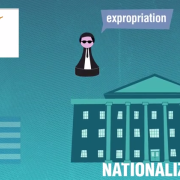17-Dec-2014
Economic Times
Bilateral investment treaties that the government of India will enter into from now on will have a provision preventing foreign investors to drag India to arbitration on any issues that have been settled by a judicial authority.
12-Dec-2014
Public Citizen
The European Commission’s claim that threats posed by the investor-state dispute settlement system can be fixed by “improving” ISDS provisions in trade pacts has already been proved false, says Public Citizen
4-Dec-2014
Public Citizen
US congressional leaders have just sent a letter to the Obama administration warning against TAFTA/TTIP provisions that could restrict Congress’ ability to prevent another financial crisis.
2-Dec-2014
Globe and Mail
The fate of Canada’s landmark trade agreement with the European Union, known as CETA, may hinge on an obscure case due to come before the European Court of Justice that relates to a similar deal the EU recently struck with Singapore.
26-Nov-2014
Business Korea
The two sides discussed the adoption of appeal instead of a single trial in the Investor-State Dispute Settlement (ISDS) but failed to reach an agreement.
25-Nov-2014
Myanmar Times
Burma is in the process of formulating an investment law which would give investors full compensation if government regulations impact their profits
23-Nov-2014
Gulf Daily News
Europe’s proposed free trade agreement with the US would collapse if European leaders bowed to pressure to remove investment protection from any deal, the chairman of EU trade ministers said.




















